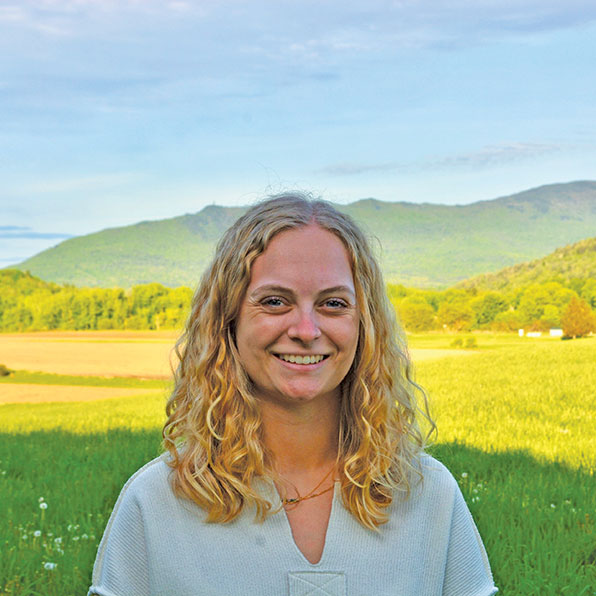Rap from the rep: Government ops looks at sheriff oversight; rural caucus tackles organic dairy farms

Lucy Boyden
On Jan. 25, H.42 (Act 1), an act relating to extending temporary alternative procedures for annual municipal meetings, was signed by Gov. Phil Scott. This bill extends expired authority for electronic public meetings and provides date and balloting flexibility for Town Meeting Day and municipal meetings. These provisions are extended until July 1, 2024.
It is not required that towns hold meetings and elections in a certain manner. Rather, it provides towns the option and flexibility to hold meetings how they see best fit their community. Later in the session, the House Committee on Government Operations and Military Affairs intends to revisit and carefully consider open meeting law requirements, especially regarding equity, access and transparency.
This week the government operations committee will discuss the roles and responsibilities of the Vermont sheriffs. This conversation is sparked by questionable sheriff activity happening within multiple counties across the state. The Vermont Constitution currently limits legislative oversight of sheriffs since they are elected members of another branch of government.
However, the Legislature is looking to study other options to institute better checks and balances. During a joint hearing with the House Committee on Judiciary we will hear from the Department of State’s Attorneys and Sheriffs, sheriffs Mark Anderson and Roger Marcoux from the Vermont Sheriff’s Association, the state auditor and others.
Scott recently delivered his seventh budget address, with this year’s totaling $8.4 billion. As he did in his inaugural address, he emphasized the need to focus on regional economic equity, as well as child care, housing and community infrastructure. In the upcoming weeks legislators will examine the governor’s proposed budget and develop their own budget.
The Rural Caucus recently heard from the Northeast Organic Farming Association of Vermont, which sought our attention and support for the allocation of funds through the budget adjustment act to support organic dairy farmers grappling with economic instability caused by inflation, drought, disruptions of organic feed grain and other factors that increase the cost of production. Since 2020, Vermont has lost 29 organic dairy farms across the state. The loss of these farms is critical to families, communities and Vermont’s economy.
The caucus is also working to create comprehensive legislation that would bring support together for administrative capacity, emergency medical services, workforce housing, trades education, disaster mitigation and community resilience, the right to repair and more.
If you have any questions, do not hesitate to reach out me. My legislative email is [email protected] or you can leave me a message at the sergeant at arms office in the Statehouse at 802-828-2228. All legislative activity, committee agendas, meeting records and livestreams can be found at legislature.vermont.gov.
Lucy Boyden, a Democrat from Cambridge, also represents Waterville in the Vermont House of Representatives.


